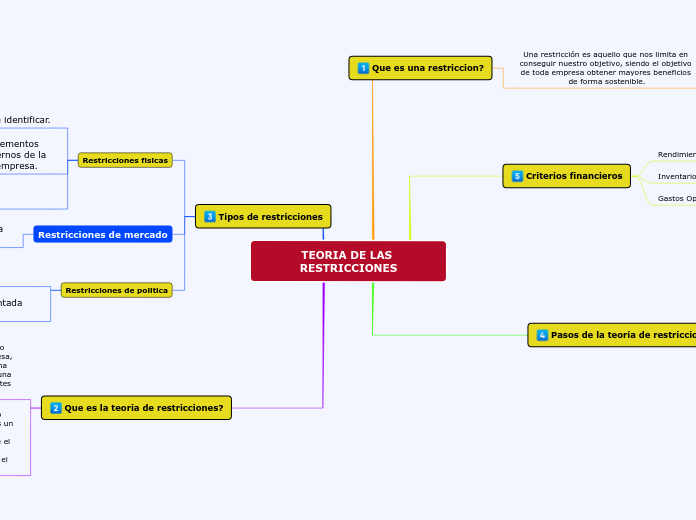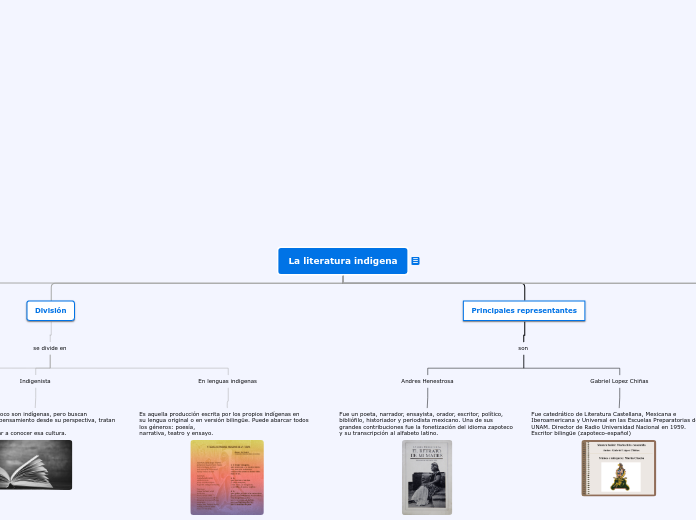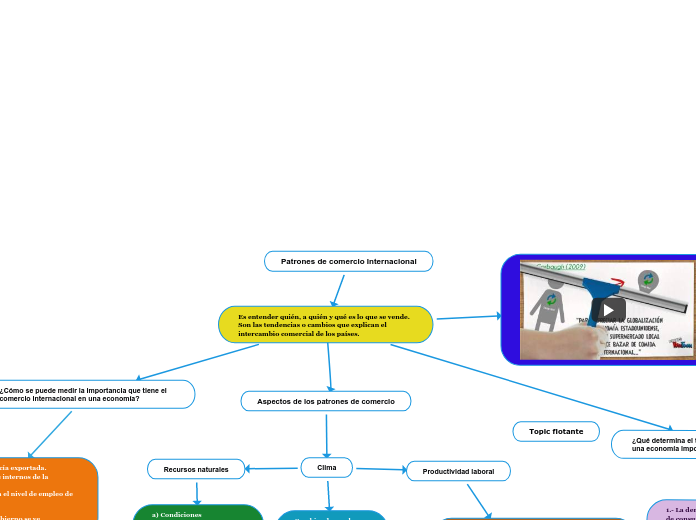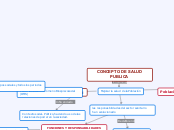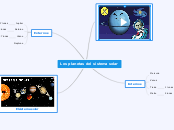TEORIA DE LAS RESTRICCIONES
In linguistics, syntax is the set of rules, principles, and processes that govern the structure of sentences in a given language, usually including word order.
Que es la teoria de restricciones?
Es una filosofía que se basa en que todo sistema productivo siempre tiene al menos un cuello de botella o restricción, y su determinación es crucial para actuar sobre el ya que este cuello de botella es el que marcara el ritmo productivo durante todo el proceso.
Es ver a un sistema como un todo, siendo plenamente conscientes de que una empresa, una planta de producción, un almacén, una cadena de suministro, etc. es en realidad una serie de eslabones fuertemente dependientes entre sí.
Tipos de restricciones
Restricciones de politica
Traditional grammar defines the object in a sentence as the entity that is acted upon by the subject.
Ejemplo: una política implementada de no trabajar horas extras.
Una política dicta la tasa de producción.
The direct object is the receiver of the action mentioned in the sentence.
Restricciones de mercado
The predicate of a sentence is the part that modifies the subject in some way. Because the subject is the person, place, or thing that a sentence is about, the predicate must contain a verb explaining what the subject does and can also include a modifier.
Las demanda restringe las unidades a producir
Restricciones fisicas
The subject of a sentence is the person, place, thing, or idea that is doing or being something. You can find the subject of a sentence if you can find the verb.
Ask the question, 'Who or what 'verbs' or 'verbed'?' and the answer to that question is the subject.
Maquinas, trabajadores, herramientas.
Elementos internos de la empresa.
Faciles de identificar.
Pasos de la teoría de restricciones
A complex sentence is a sentence that contains an independent clause and one or more dependent clauses.
An independent clause can stand alone as a sentence, but a dependent clause even though it has a subject and a verb cannot stand alone.
Volver al paso 1
An adverbial clause is a group of two or more words that function as an adverb in a sentence.
Mejoramiento continuo atravez de la identificación de la nueva restricción o edificar que esta no ha cambiado.
Elevar la capacidad de la restricción
An appositive clause follows another noun or noun phrase in apposition to it; that is, it provides information that further identifies or defines it.
Hacer una mejora al proceso de tal manera que el cuello de botella desaparezca.
Subordinar
The subject clause is a dependent clause that acts as a subject.
Subordinar todo a la desicion anterior.
Explotar la restricción
A predicative clause may be introduced by conjunctions - that, whether, whether... or, as, as if, as though, because, lest, the way - or connectives.
The latter may be conjunctive pronouns - who, whoever, what, whatever, which - or conjunctive adverbs - where, wherever, when, whenever, how, why.
hacer el mayor provecho para la restricción sin ninguna inversión adicional.
Identificar la restricción
The object clause is a phrase on which a verb performs an action. It falls at the end of a sentence, and is governed by a verb or a preposition.
Se busca dentro del proceso el elemento o subproceso que esta limitando el ritmo de este.
Criterios financieros
Gastos Operativos (GO)
Inventario (I)
Rendimiento (T)
Que es una restriccion?
Una restricción es aquello que nos limita en conseguir nuestro objetivo, siendo el objetivo de toda empresa obtener mayores beneficios de forma sostenible.
